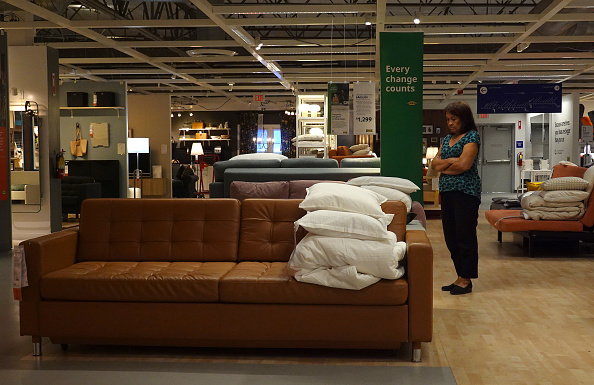U.S. President Donald Trump said on Monday he was slapping 10% tariffs on imported timber and lumber and 25% duties on imported kitchen cabinets, bathroom vanities and upholstered furniture, continuing his tariff assault on global trading partners.
Trump signed a presidential proclamation laying out his argument that timber, lumber and furniture imports are eroding U.S. national security to justify the new duties under Section 232 of the Trade Act of 1974.
The proclamation said the tariff rates would start on October 14, but added that duties will increase on January 1 to 30% for upholstered wooden products and to 50% for kitchen cabinets and vanities imported from countries that fail to reach an agreement with the United States.
The action is the first in three sectors that Trump said last week would get steep new duties as early as October 1, including patented pharmaceutical imports, and heavy truck imports. But Monday’s proclamation sets the start of the lumber and furniture duties two weeks later, at 12:01 a.m. EDT (0401 GMT) on October 14.
Trump’s proclamation said wood product imports are weakening the U.S. economy, resulting in the persistent threats of closures of wood mills and disruptions of wood product supply chains and diminishing utilization of the U.S. domestic wood industry.
“Because of the state of the United States wood industry, the United States may be unable to meet demands for wood products that are crucial to the national defense and critical infrastructure,” the statement said.
The order added that wood products are used for “building infrastructure for operational testing, housing and storage for personnel and materiel, transporting munitions, as an ingredient in munitions, and as a component in missile-defense systems and thermal-protection systems for nuclear-reentry vehicles.”
PAIN FOR CANADA, VIETNAM, MEXICO
The action heaps more tariffs on Canada, the biggest softwood lumber supplier to the U.S., where producers already face combined U.S. anti-dumping and anti-subsidy tariffs of about 35% due to a long-festering dispute over timber harvested from Canadian public lands.
Canada, which hopes to negotiate U.S. tariff reductions through a broader revamp of the 2020 U.S.-Mexico-Canada agreement on trade, has said it would provide up to C$1.2 billion ($870 million) in aid to its softwood lumber producers to cope with the prior duties.
Mexico and Vietnam are growing suppliers of wooden furniture to the U.S. after Trump hit Chinese furniture products with tariffs of up to 25% during his first term starting in 2018 – duties which have since been raised to about 55% and now could nearly double for cabinets and vanities.
Trump’s proclamation offered some countries that have struck tariff-reducing trade deals with the U.S. some relief from the higher wood products duties. It said that U.S. tariffs on wood products from Britain would be capped at 10% and those from the European Union and Japan would be capped at 15% – rates in line with the base tariff rate in those framework agreements.
But Trump’s statement made no mention of his trade deal with Vietnam for a 20% tariff rate in July, an agreement that still has not been formally documented.
In April, after the Commerce Department opened the national security probe into U.S. lumber imports, the U.S. Chamber of Commerce announced its opposition to any restrictions on imports of timber, lumber and their derivative products, including wood pulp, paper and cardboard.
“Imports of these goods do not represent a national security risk,” the Chamber wrote. “Imposing tariffs on these goods would raise costs for U.S. businesses and home construction, undermine the export success enjoyed by the U.S. paper industry, and reduce incomes in many U.S. communities.”
(Reuters)














